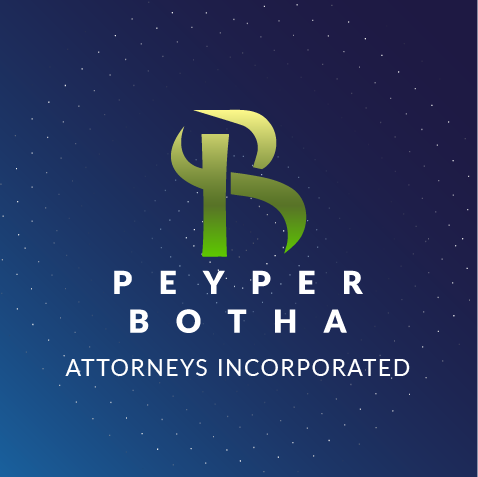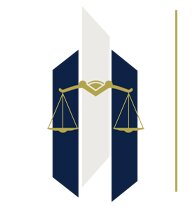Best Public-Private Partnerships (PPP) Lawyers in Bloemfontein
Share your needs with us, get contacted by law firms.
Free. Takes 2 min.
List of the best lawyers in Bloemfontein, South Africa
About Public-Private Partnerships (PPP) Law in Bloemfontein, South Africa
Public-Private Partnerships (PPP) are collaborative projects where government entities and private sector companies work together to deliver public infrastructure or services. In Bloemfontein, as in the rest of South Africa, PPPs are increasingly used to improve public service delivery, fund large infrastructure projects, and drive economic development. The legal framework governing PPPs provides guidelines for structuring agreements, managing risks, and ensuring accountability for both public and private participants.
Why You May Need a Lawyer
Engaging in a Public-Private Partnership involves complex legal considerations. Legal professionals can assist in various situations, including:
- Drafting and reviewing PPP contracts and agreements
- Negotiating terms between government and private entities
- Ensuring compliance with local and national legislation
- Advising on risk allocation and dispute resolution mechanisms
- Navigating procurement processes and regulatory approvals
- Protecting intellectual property and confidentiality interests
- Advising on financial structuring, funding, and guarantees
- Resolving contractual or partnership disputes
- Assessing public interest concerns such as transparency and accountability
- Advising foreign investors on local compliance and partnership norms in Bloemfontein
Local Laws Overview
PPP projects in Bloemfontein are governed by a mixture of national and local legislation. The key piece of legislation is the Public Finance Management Act (PFMA) and its associated Treasury Regulations, which set the standards for PPP processes at the national and provincial levels. The Municipal Finance Management Act (MFMA) and the relevant regulations provide the framework for municipalities, including the Mangaung Metropolitan Municipality, which encompasses Bloemfontein.
PPP agreements must adhere to South Africa’s strict procurement procedures, risk assessment documentation, and feasibility studies. All projects require transparency and must demonstrate value for money, affordability, and appropriate risk allocation. Oversight bodies such as the National Treasury provide guidelines and approval processes to ensure legal compliance at all phases of the PPP lifecycle. Municipal PPPs also need the direct involvement and scrutiny of local council structures in Bloemfontein.
Frequently Asked Questions
What is a Public-Private Partnership (PPP)?
A PPP is a contractual arrangement between a public sector body and a private party to deliver a public service or infrastructure, where the private party assumes significant risks and management responsibilities.
Who regulates PPPs in Bloemfontein?
National Treasury is the main regulatory body, with local oversight provided by the Mangaung Metropolitan Municipality for city-level PPPs. Agreements must also comply with both the PFMA or MFMA, depending on the entity involved.
What types of projects typically use PPP structures in Bloemfontein?
Common PPP projects include water treatment facilities, road construction, public transportation, waste management, healthcare facilities, and municipal buildings.
How is a PPP project initiated in Bloemfontein?
A government department or municipal body initiates the process by identifying a service or infrastructure need, carrying out a feasibility study, gaining required approvals, and using an open procurement process to select a private partner.
What are the main legal documents in a PPP?
Key legal documents include the PPP agreement (contract), service level specifications, risk allocation matrix, financial schedules, and performance monitoring frameworks.
Can foreign companies participate in PPPs in Bloemfontein?
Yes. Foreign companies can participate, but must comply with South Africa’s procurement, legal, and tax regulations, and may require local representation or joint ventures.
What are the main risks in PPPs?
Risks include financial risk, construction and completion risk, operational risk, regulatory compliance, and political or reputational risks for both parties.
What happens if a dispute arises in a PPP deal?
Dispute resolution mechanisms are detailed in the contract and often include negotiation, mediation, arbitration, or, in some cases, litigation under South African law.
How long do PPP agreements usually last?
PPPs typically last from 10 to 30 years, depending on the scope and nature of the project, with provisions for extensions or early termination under certain conditions.
Why should I consult a lawyer before entering a PPP?
Lawyers help ensure that all legal aspects are addressed, risks are properly managed, contracts are fair, and compliance with all applicable laws is maintained throughout the project lifecycle.
Additional Resources
Individuals seeking guidance on PPPs in Bloemfontein can benefit from the following resources and organizations:
- The National Treasury PPP Unit provides guidelines, policies, and support for PPP projects nationwide.
- The Mangaung Metropolitan Municipality, which includes legal and PPP advisory services at a local level.
- The South African Local Government Association (SALGA), which offers advice and training for municipal PPPs.
- Legal practitioners specializing in construction, procurement, and municipal law in Bloemfontein.
- Professional bodies such as the Law Society of South Africa for referrals to qualified PPP lawyers.
Next Steps
If you are considering involvement in a Public-Private Partnership in Bloemfontein, it is essential to seek qualified legal advice early in the process. Begin by identifying your needs and compiling relevant documents. Research local law firms or practitioners with PPP expertise and arrange a consultation to discuss your options, clarify your obligations, and understand your rights. Keep thorough records of all communications and agreements, and involve your legal advisor in negotiations and contract drafting to ensure your interests are protected at every stage.
Lawzana helps you find the best lawyers and law firms in Bloemfontein through a curated and pre-screened list of qualified legal professionals. Our platform offers rankings and detailed profiles of attorneys and law firms, allowing you to compare based on practice areas, including Public-Private Partnerships (PPP), experience, and client feedback.
Each profile includes a description of the firm's areas of practice, client reviews, team members and partners, year of establishment, spoken languages, office locations, contact information, social media presence, and any published articles or resources. Most firms on our platform speak English and are experienced in both local and international legal matters.
Get a quote from top-rated law firms in Bloemfontein, South Africa — quickly, securely, and without unnecessary hassle.
Disclaimer:
The information provided on this page is for general informational purposes only and does not constitute legal advice. While we strive to ensure the accuracy and relevance of the content, legal information may change over time, and interpretations of the law can vary. You should always consult with a qualified legal professional for advice specific to your situation.
We disclaim all liability for actions taken or not taken based on the content of this page. If you believe any information is incorrect or outdated, please contact us, and we will review and update it where appropriate.











